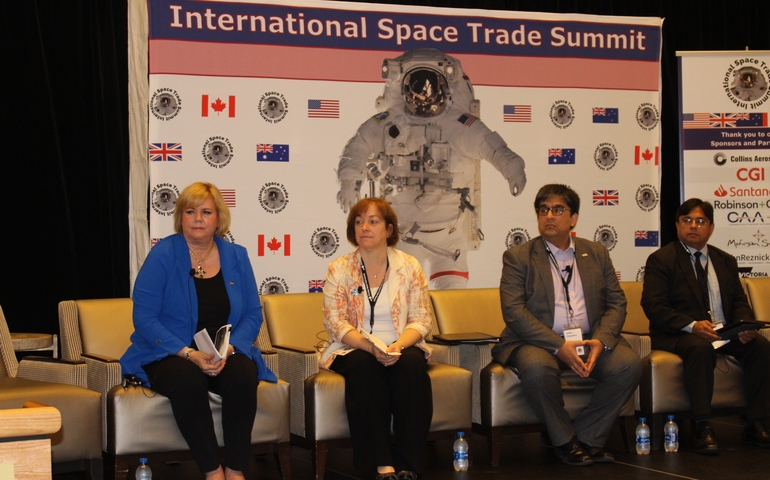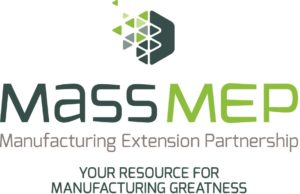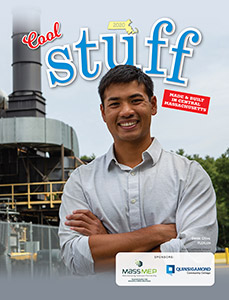As the U.S. and its space allies plot their next phases of lunar and deep-space explorations, some of Connecticut’s biggest and smallest aerocomponents makers and other suppliers want more than just to go along for the ride.
There will be plenty of new technologies for manufacturers to harvest and money to be made among the nation’s supply chain when the U.S. sets foot on its orbiting satellite for the first time since Dec. 1972, observers say.
“Humanity is embarking on an exciting chapter in space exploration,’’ said Dan Burbank, a retired astronaut from Tolland now senior technical fellow at Collins Aerospace, a unit of United Technologies Aerospace Systems (UTAS) in Windsor Locks.
Burbank, speaking to space-agency leaders and private executives/business owners from the U.S. and abroad on Monday at Connecticut’s first International Space Trade Summit at the Hartford Marriott Downtown, said U.S. plans to resume lunar missions by 2024 are a real opportunity for Earth’s global supply chain.
Known as “Lunar Gateway,’’ America’s space agency envisions an orbiting laboratory-factory through which astronauts and Earth-bound technologists devise equipment and processes, opening the door to more lunar exploration as well as humankind’s eventual mission to Mars and deeper space exploration.
President Donald Trump’s administration recently announced it was moving up the U.S. return to the moon by four years, from 2028.
“We’re going to be literally bringing that supply chain to space,’’ Burbank said at the second of a three-day space-trade networking and plenary session.
Anne Evans, Connecticut district director for the U.S. Commerce Department’s commercial services division and event host, said that Hartford is hosting more than 100 participants, some from as far away as Australia and New Zealand.
“This is how you get companies into space,’’ Evans said.
The three-day summit, which began Sunday and ends Tuesday, brought in top executives with the National Aeronautics and Space Administration, as well as counterparts from the Australian, British, Canadian and New Zealand space agencies.
Connecticut Congressman Joe Courtney (D-2nd District) moderated a Monday morning panel with space-agency executives who detailed their nations’ efforts to contribute technologies and support systems to Lunar Gateway in hopes of harvesting knowledge, such as the global impact of climate change, and other technologies that arise from it.
Other companies attending the Hartford space event session on Monday and Tuesday include Boeing, General Dynamics, Raytheon, UConn School of Engineering, the Connecticut Center for Advanced Technology, and the regional office of the U.S. Small Business Administration



